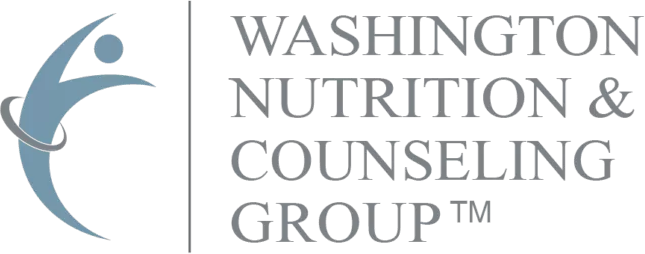
A DEXA Scan allows you to find out exactly how much body fat and muscle you have and where. The scan gives you an accurate baseline from which you are able to objectively measure changes in your body composition over time. The DEXA Scan is considered the “gold standard” in body composition testing because of its precision and short scan time. The scan can be of benefit to a wide variety of dieters, bodybuilders, athletes, and those simply seeking better health and fitness.
What is a DEXA Scan?
A DEXA scan, or dual-energy x-ray absorptiometry, uses x ray technology to determine the distribution of lean muscle, fat, water, and bone in your body. DEXA results are highly accurate and highly reproducible, unlike other body composition measuring tools currently available.
A DEXA scan works by delivering two safe, low dose x-ray beams at differing energy levels through the tissues of the body. The amount of radiation that passes through the tissue is measured and analyzed, determining how much of your tissue is muscle, fat, water, or bone. The 7-minute scan also indicates where all of these components are all stored.
Why should I have a DEXA Scan?
In short, a DEXA Scan can give you important information for your health and aid you in reaching your athletic, nutritional, or general healthcare goals. It’s also beneficial to those who are seeking to maintain their strength and weight as they age. Getting a baseline measurement of fat, muscle, and bone allows you to understand exactly where you are starting and track your weight loss and body composition changes over time. As human beings age, we lose muscle and bone mass, especially in our core and legs, putting us at greater risk of injury. Having a baseline measurement and tracking changes over time helps identify potential problems and lets you take preventative action early.
Advantages
- Overall body fat, lean tissue (muscle), bone weight, and percentages
- Breakdowns for both legs, arms, and torso
- DEXA scan image showing the distribution of your body’s fat and muscle
- Reveal the locations of visceral fat, the dangerous fat surrounding bodily organs
- Determine pre-and post-workout fuel mixtures based on your body fat and lean tissue percentages
- Establish baseline measurements to monitor your strength, conditioning, and nutrition program effectiveness
- Evaluate whether your body composition is appropriate for your sport, position, health, and goals
- Track your body composition levels throughout rehabilitation of a severe injury to guard against muscle loss or fat gain
- Reveal irregularities in food behavior
- Estimate your bone mineral content in specific areas, enabling you to track rates of bone loss and determine potential fracture risks
- Identify muscle imbalances that could result in injury
What fitness goals or conditions can a DEXA Scan be of assistance with?
- Body composition assessment for sport
- Fat Loss and Muscle bulking
- Overweight and/or obesity
- Hypertension (high blood pressure)
- Hyperlipidemia (high cholesterol, triglycerides, and/or lipoproteins)
- Insulin Resistance
- Metabolic Syndrome
- Relative Energy Deficiency Syndrome (RED-S) or reduced Resting Metabolic Rate (RMR)
- Assessment of metabolic risk profile
- Cardiovascular Disease
- Diabetes (Pre Diabetes, Type 1 or 2)
- Hypogonadism
- Hyperparathyroidism
- Post-menopausal
- Polycystic Ovarian Syndrome
- Non Alcoholic Fatty Liver Disease
- Cancer and cancer cachexia
- Eating disorder and low body weight
- Bariatric (weight loss), Gastrectomy or Intestinal Bypass Surgery
- Major surgery
- Muscle asymmetry or muscle wasting post-injury or surgery
- Sarcopenia and Muscular Dystrophy
Why is a DEXA Scan preferable to other body composition measuring methods?
The primary advantage of DEXA Scan over using a fat estimate device such as bioimpedance scales, calipers, tape measure, or a displacement estimate device (hydrostatic dunk tank, Bod Pod) is that the DEXA Scan is actually measuring your body fat composition with precision and providing you with accurate measurements.
Who is a DEXA Scan not right for?
- Those under 18 years of age
- If you are pregnant
- If you have had a DEXA Scan within the past 8 weeks or a total of 4 DEXA scans in the past year
- Anyone unable to remain motionless for 7 minutes during the scan
I’m concerned about the radiation in a DEXA Scan.
DEXA uses a very weak type of wave. In fact, the radiation dose is just one-tenth the amount in a regular chest x-ray. It is around the same amount of natural radiation you experience in a day.
Is a DEXA Scan covered by insurance? I’m concerned about cost.
A DEXA Scan is rarely covered by insurance and is usually a cash pay service. The cash price for a DEXA Scan in Alexandria, VA and the surrounding areas ranges from $75-150.
Bone density scans prescribed by your doctor are almost always covered by insurance. The cash price for a DEXA Scan for bone density averages around $200. Prices vary considerably depending on your insurance coverage and deductible. Generally, prices are less expensive when the DEXA Scan is performed in an out-patient diagnostic facility rather than a hospital location.
How should I prepare for my appointment?
You will want to avoid taking any calcium supplements in the 24 hours prior to your exam. It’s important to wear something comfortable to your DEXA Scan. No metal can be worn during the scan, so choose clothing without zippers or metal buttons, etc. Avoid underwire bras. Also, belt buckles will need to be removed prior to your scan to avoid interfering with scan results.
The scan itself is not a claustrophobic or loud experience. Unlike an MRI or a CT scan, you will not lie in a closed-off tube, but on an open table. A scanning wand will be passed quickly over your body. A DEXA Scan takes approximately seven minutes and your results are available immediately after the test.


